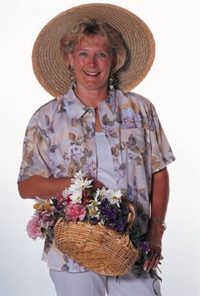
There is strong scientific evidence that exercise has many benefits for cancer patients. Move More, a new report by Macmillan Cancer Support, outlines those benefits. Sadly, many health professionals are not aware of this issue.
Cancer is a big issue for many of us – my own Mother passed away last year as a result of cancer. Sadly, by the time my Mum was diagnosed, she was way too ill to exercise. But for millions of other cancer patients, regular exercise is an important therapy that is often ignored.
Four key findings from the report are:
- Breast cancer patients’ risk of recurrence and of dying from the disease can be reduced by up 40% by being active
- Bowel cancer patients’ risk of recurrence and of dying from the disease can be reduced by around 50% by being active
- Prostate cancer patients’ risk of dying from the disease can be reduced by up to 30% by being active
- Cancer patients can reduce their risk of getting side effects of cancer and its treatment by being physically active
Doctors Unaware
Unfortunately, most health professionals are not aware of the benefits of exercise as a cancer therapy. A survey by Macmillan found that most GPs, practice nurses, oncologists and cancer nurses do not speak to their patients about the possible benefits of physical activity, or at best they speak to just a few of them.
Ciaran Devane, chief executive of Macmillan Cancer Support, says:
“Cancer patients would be shocked if they knew just how much benefit physical activity could have on their recovery and long-term health, in some cases reducing their chances of having to go through the grueling ordeal of treatment all over again… It is essential that physical activity services are available and ‘prescribed’ to all cancer patients.
“It doesn’t need to be anything too strenuous, doing the gardening, going for a brisk walk or a swim all count. Health professionals can refer patients to a variety of services such as physiotherapy, specialist exercise programmes at leisure centres or walking groups.”
Traditionally, patients were told to rest after cancer treatment. The new report suggests that this advice is out-dated and possibly even dangerous. Jane Maher, Chief Medical Officer of Macmillan Cancer Support and leading clinical oncologist said:
“The advice that I would have previously have given to one of my patients would have been to ‘take it easy’. This has now changed significantly because of the recognition that if physical exercise were a drug, it would be hitting the headlines. There really needs to be a cultural change, so that health professionals see physical activity as an integral part of cancer after care, not just an optional add-on.”